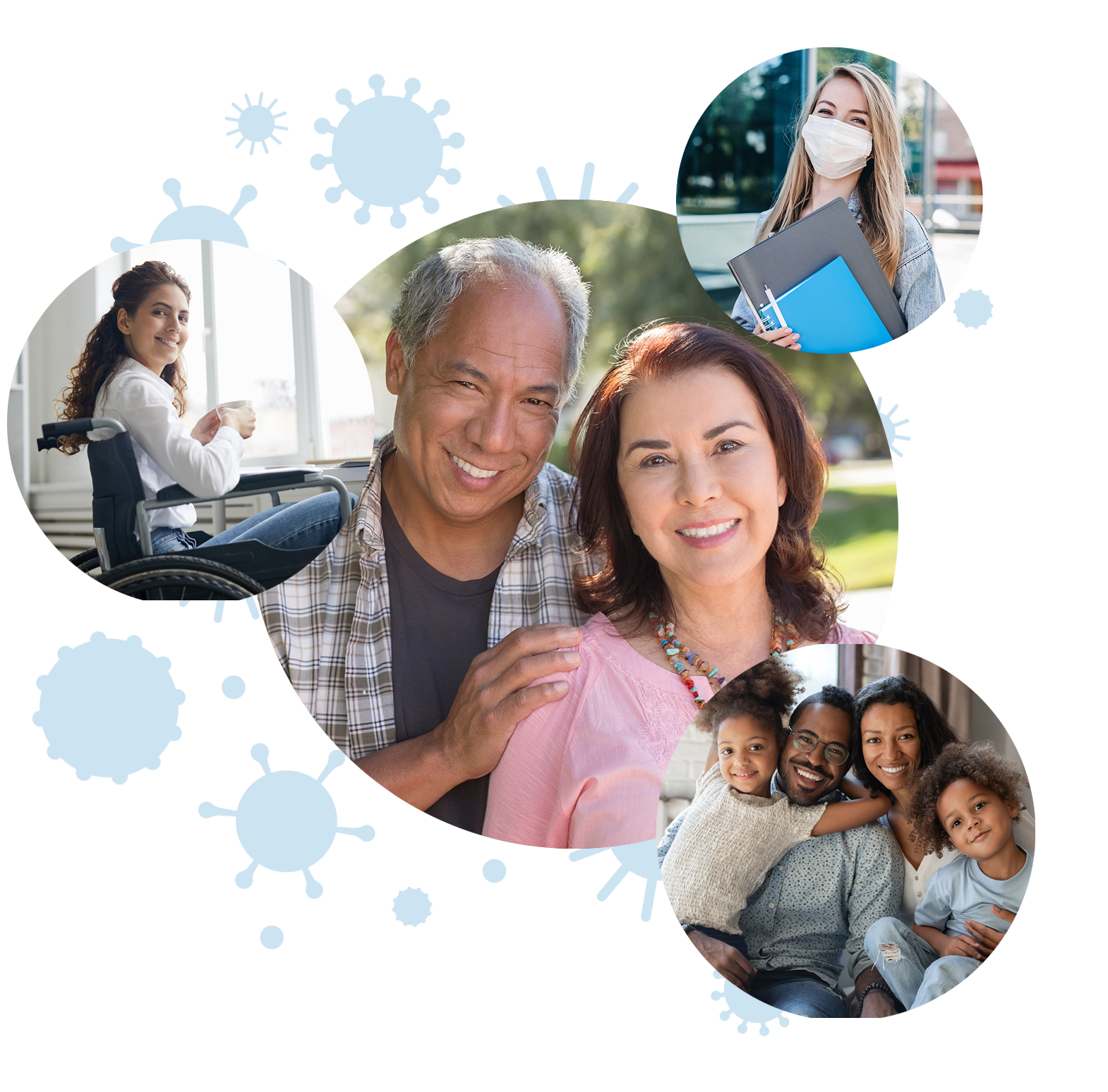RECOVER-SLEEP
RECOVER-SLEEP is focused on sleep disturbances related to Long COVID, such as problems falling and staying asleep, feeling very sleepy or tired during the day, or an irregular sleep-wake schedule.


This web page provides information about 2 clinical trials: RECOVER-SLEEP Hypersomnia (Modafinil/Solriamfetol) and RECOVER-SLEEP Complex Sleep Disturbances (Melatonin + Light Therapy).
Where are the study sites located?
What is being studied?
RECOVER-SLEEP is studying possible treatments, also called study interventions, to reduce sleep problems related to post-acute sequelae of SARS-CoV-2 (PASC), or Long COVID. These studies will include adults who had COVID and who still have 1 or more of these symptoms:

Problems falling asleep or staying asleep

Poor sleep quality

Trouble staying awake or feeling very tired during the day
The study team will ask participants about their sleep-related breathing problems to determine if they have sleep apnea that requires treatment. The study team will also ask participants about their sleep symptoms that started or got worse after a COVID infection. Participants will be assigned to 1 of these 2 studies that best matches their symptoms:

RECOVER-SLEEP Hypersomnia (Modafinil/Solriamfetol): sleeping longer than usual or feeling very sleepy or tired during the day, even after getting a full night’s sleep

Complex Sleep Disturbances (Melatonin + Light Therapy): poor sleep quality or problems falling asleep or staying asleep
In these studies, modafinil and solriamfetol are considered repurposed drugs. Repurposed drugs are medicines that are approved by the U.S. Food and Drug Administration (FDA) to treat health conditions that are not related to Long COVID. Each of the repurposed drugs in RECOVER clinical trials must be studied as a possible treatment for Long COVID symptoms before the FDA can approve the drug to be used as a treatment for this health condition.
In this video about RECOVER-SLEEP, lead study doctors Dr. Redline and Dr. Barkauskas describe the studies and why they are important for people with Long COVID and their loved ones.
What happens during this study?
Participants will be in RECOVER-SLEEP for 3 to 4 months depending on their assigned study group. During this time, they will be asked to:
Visit the study clinic 2 to 3 times
Use a study intervention, such as a study drug, device, or other approach, provided at no cost
Wear an activity tracker to record rest and activity
Complete a sleep diary and answer surveys about how they are feeling
Complete lab tests and other tests to measure memory and thinking abilities
Learn more about the study interventions

Participants in this study will be assigned by chance to take the active study drug, called modafinil, or placebo for 10 weeks. If a participant can’t take modafinil because it interacts with their other medications, they will receive a different study drug, called solriamfetol, or placebo.
The research team and participants will not know who is receiving an active study drug or placebo. The placebo pill looks like the active study drug but has no active ingredients.
Each participant is a valuable contributor to this study. Without the placebos to use as points of comparison, researchers would not be able to learn how the study interventions affect Long COVID symptoms.


During an 8-week study intervention period, participants in this study will be asked to:
- Take melatonin or placebo
- Use a table lamp to receive high-intensity (active) light or low-intensity (placebo) light
- Follow an individualized sleep plan for what time to use the study interventions and when to go to sleep
Together, the study interventions may help participants regulate their sleep-wake patterns and improve their quality of sleep.

Melatonin: a natural hormone in the brain that helps regulate the timing of sleep, given to participants as a supplement pill. The placebo pill looks like the active study drug but has no active ingredients.
Light therapy: exposure to a bright light that may help improve and regulate sleep-wake patterns. The low-intensity (placebo) light looks like the high-intensity (active) light but has lower light levels and is unlikely to influence sleep-wake patterns. Participants will be asked to wear a light sensor during the study to measure the light in their environment.
Each participant is a valuable contributor to this study. Without the placebo melatonin and low-intensity light to use as points of comparison, researchers would not be able to learn how the study interventions affect Long COVID symptoms.

What do we hope to learn?
Results from these studies will help us learn if the study interventions are safe and improve sleep quality and daily functioning for people who have Long COVID. The research team will use a variety of assessments, including tests to measure memory and thinking abilities and participant surveys, to determine if the study interventions help people feel better by improving their quality of sleep.
After the studies are complete and the data have been analyzed, the overall study results will be shared widely with the public and in academic publications.
Who is leading this study?
The RECOVER-SLEEP team includes patient representatives, community leaders, doctors, and researchers from across the country. Community partners help make sure the studies include and benefit people most affected by Long COVID.
Learn moreLearn more about RECOVER-SLEEP

